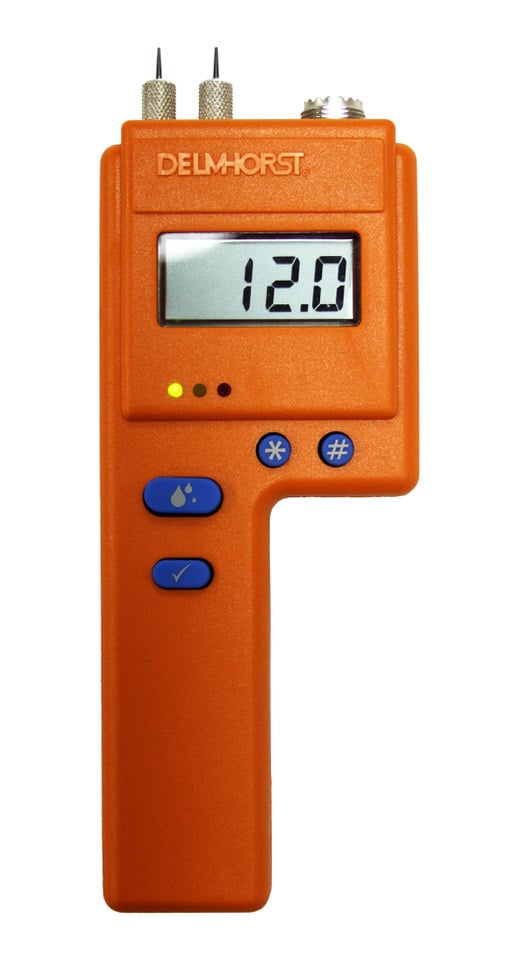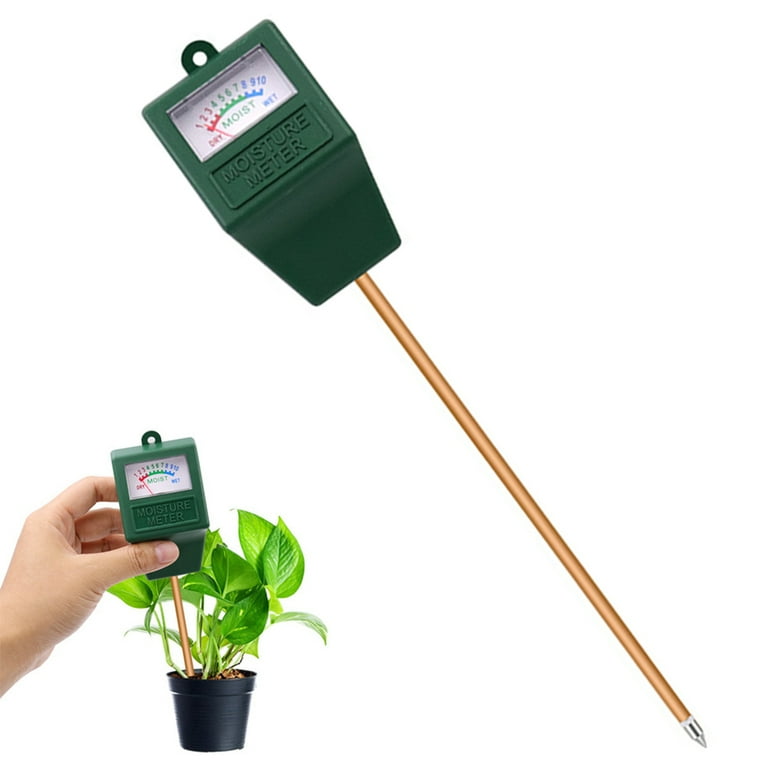Moisture Meter Reviews: Contrasting the most effective Versions for Specialist and DIY Use
Moisture Meter Reviews: Contrasting the most effective Versions for Specialist and DIY Use
Blog Article
The Ultimate Overview to Moisture Meters: A Comprehensive Introduction and How They Can Conserve You Cash
In the realm of building maintenance, building and construction, and various markets, the value of accurately measuring wetness degrees can not be overemphasized. Dampness meters work as crucial devices in detecting and checking moisture web content in materials, helping in stopping costly damages and making certain the high quality of products. Understanding the subtleties of different types of moisture meters, their applications, and the possible cost-saving advantages they offer can be a game-changer for organizations and experts alike. Finding how these devices can not only enhance procedures yet also contribute to monetary cost savings is a trip worth starting.
Types of Moisture Meters
Various types of wetness meters are available for various applications in different sectors. One usual kind is the pin-type dampness meter, which measures the electrical resistance between two pins inserted into a material. This kind is ideal for timber, drywall, and various other structure materials. Pinless wetness meters, on the other hand, usage electromagnetic sensing unit plates to scan a bigger area without creating damages to the material's surface area. These meters are suitable for promptly analyzing wetness degrees in large locations such as floors and wall surfaces.
Infrared dampness meters determine the thermal residential properties of a product to establish its moisture material non-invasively, making them useful for applications where pin or pinless meters might not be ideal. Recognizing the different types of moisture meters offered can help industries choose the most proper device for their certain dampness measurement demands.

Advantages of Making Use Of Moisture Meters

Moreover, using wetness meters can lead to raised energy effectiveness. By identifying areas with high dampness levels, such as leakages or inadequate insulation, adjustments can be made to boost power conservation and minimize utility prices. In agricultural setups, dampness meters play an important role in maximizing plant yields by making it possible for farmers to check dirt moisture levels and make informed watering decisions. Overall, the advantages of making use of dampness meters cover across various sectors, providing affordable services and advertising better quality assurance practices.
Just How to Select the Right Moisture Meter
Choosing the suitable dampness meter involves thinking about crucial variables such as product compatibility, dimension array, and calibration accuracy. When selecting a moisture meter, it's vital to make certain that the meter is ideal for the details product you will certainly be testing. Various materials have differing electric buildings that can affect moisture analyses, so selecting a meter developed for your material is vital for accurate results. Furthermore, take into consideration the dimension array of the moisture meter. Make certain that the meter can discover dampness levels within the range required for your applications. Calibration precision is one more critical aspect to bear in mind (Moisture Meter). Go with a wetness meter with trustworthy calibration to guarantee specific and regular analyses. Some meters might require periodic calibration changes, so recognizing the calibration process is essential. By meticulously reviewing these variables, you his comment is here can pick a moisture meter that meets your demands and provides exact moisture measurements for your tasks.
Proper Methods for Moisture Meter Use
To make certain exact dampness readings and optimize the performance of a moisture meter, using proper methods is important. When making use of a pin-type dampness meter, insert the pins or probes right into the product being tested up until they make full call. Make sure the pins are vertical to the surface to get one of the most specific analysis. For pinless moisture meters, hold the tool level against the product and relocate gradually to cover the entire location for an ordinary reading. It's important to calibrate the wetness meter according to the product being tested to improve precision. Take numerous readings throughout the surface and ordinary them out for an extra reputable result. In addition, ensure that the material being checked is acclimated to the environment to stop skewed analyses. Regular maintenance of the dampness meter, such as cleaning the pins or sensor, is additionally important to make sure accurate and consistent readings. By complying with these correct methods, individuals can rely upon their wetness meter to give reliable moisture degrees, assisting in stopping pricey damages or making certain quality in different applications.

Expense Cost Savings Through Moisture Meter Applications
How can the tactical usage of wetness meters bring about substantial cost financial savings throughout numerous markets? Dampness meters play a crucial role in price savings by avoiding prospective damages and ensuring high quality control in various markets. In the farming sector, moisture meters aid in determining the ideal time for collecting plants, protecting against excess or over-drying moisture that can influence the final product's quality. This specific monitoring helps farmers stay clear of unnecessary losses and optimize their return.

Furthermore, in the food processing industry, wetness meters are necessary for keeping an eye on product quality and ensuring compliance with safety and security regulations. By precisely measuring moisture web content in foodstuff, producers can avoid wasting, preserve quality, and minimize waste, leading to considerable price financial savings. address In general, the strategic application of wetness meters is a valuable investment that can result in considerable expense reductions and boosted effectiveness throughout different sectors.
Conclusion
In final thought, dampness meters are valuable tools for measuring and detecting wetness degrees in different products. By utilizing the right dampness meter and complying with proper techniques, customers can successfully protect against costly damages triggered by excess moisture.
Dampness meters offer as vital tools in spotting and keeping track of moisture web content in materials, aiding in avoiding expensive problems and guaranteeing the quality of items. Infrared dampness my site meters measure the thermal buildings of a material to identify its wetness web content non-invasively, making them valuable for applications where pin or pinless meters might not be ideal.Wetness meters provide important advantages in accurately evaluating and checking moisture levels in varied products and settings. In agricultural setups, dampness meters play a vital duty in optimizing crop yields by making it possible for farmers to check dirt dampness degrees and make informed irrigation choices.In conclusion, wetness meters are beneficial devices for gauging and spotting moisture levels in various products.
Report this page